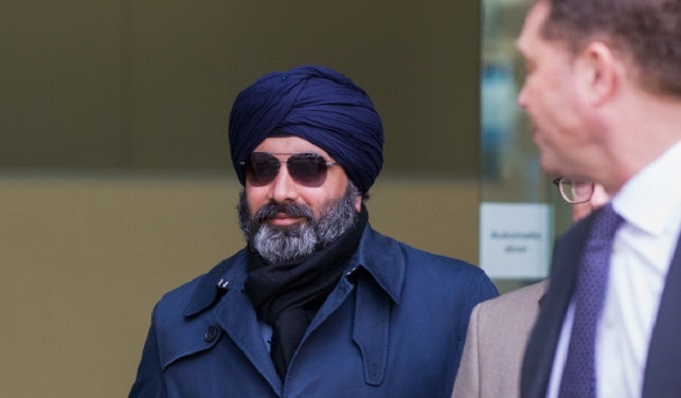Mozambique: Man, thought to be a police officer, shot dead in Ndlavela - Notícias report
Second ex-Credit Suisse banker testifies against Boustani – AIM report

FILE: For illustration purposes only. [File photo: Getty]
Former Credit Suisse banker Surjan Singh told a New York court on Tuesday that he had received kickbacks from Jean Boustani, a sales executive for the Abu Dhabi-based Privinvest group, now on trial for his part in the scandal of Mozambique’s “hidden debts”.
Boustani is facing charges of conspiracy to commit money laundering, wire fraud and securities fraud.
Singh is the second former Credit Suisse employee to confess to his part in the fraud and to testify against Boustani. His superior at Credit Suisse, Andrew Pearse, testified for several days in October.
According to a transcript of Tuesday’s court proceedings, Singh said he had become aware that Pearse was receiving kickbacks from Boustani “and I didn’t tell anyone about that. I also agreed to receive kickbacks from Mr Jean Boustani. I did receive those kickbacks and I didn’t tell anyone about them, including Credit Suisse”.
He said he received 5.7 million US dollars from Boustani as payments for lobbying on behalf of two of the Mozambique loans, for the companies Proindicus and Ematum (Mozambique Tuna Company).
“I was going through the approval process internally at Credit Suisse to have these transactions approved, and I supported them”, Singh told the court. “I put my support behind them. I allocated resources to get them approved. I prioritised them over other transactions. And I got them approved in the end”.
Singh said the kickbacks were paid to a bank account in Abu Dhabi, which Boustani helped him open by arranging an address in the United Arab Emirates, and a residence permit for him.
Boustani, he added, helped him keep the kickbacks secret, not only from Credit Suisse, but from institutions investing in the Proindicus and Ematum debt.
Singh also gave a detailed explanation of the plea bargain he had struck with the US prosecutors. He had entered a guilty plea to the charge of conspiracy to commit money laundering, in exchange for the prosecutors dropping the other charges.
Nonetheless, he still faces the possibility of a 20 year prison sentence. The agreement also envisages a term of “supervised release” of up to three years. He also faces a fine of 500,000 dollars or twice the value of the monetary instruments involved, in addition to restitution of whatever losses were caused by his conduct (to be determined by the court).
Singh must also hand over to the US government the 5.7 million dollar kickback he received. He told the court that he has already paid the government that sum in full.
The agreement bars him from appealing against his eventual sentence, provided it is 20 years or less. But as long as he tells the truth and cooperates with the government, it will not pursue any other charges against him.
But if Singh does not testify truthfully, he added, “the agreement would be void from the government’s point of view”, and the other charges against him could be reinstated, including possible new charges, such as perjury.













Leave a Reply
Be the First to Comment!
You must be logged in to post a comment.
You must be logged in to post a comment.